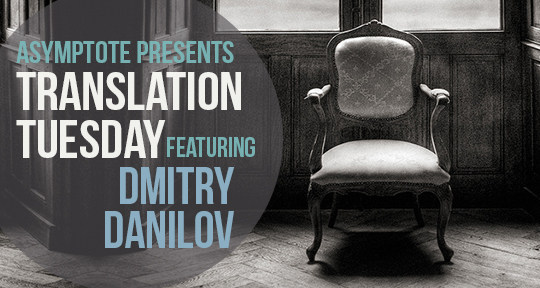For this week’s edition of In This Together, we present a text from the French writer, journalist, and musician Tania de Montaigne. Sarah Moore, translator and Assistant Blog Editor at Asymptote, introduces the piece:
This week, France ended its national lockdown that had been in place for almost two months. Yet, of course, life has not returned to normal and people have been adapting to the déconfinement, along with the many changes it has brought. During the lockdown, French daily newspaper Libération (popularly known as Libé) continued to publish its weekly column “Écritures” in its weekend edition, written alternately by four French writers including Tania de Montaigne. This particular article, “Pour mémoire” (“For the record”) looks back on everyday life before the COVID-19 pandemic, recalling past normality. Saying something ‘for the record’ is to let a voice ring out, to publicly declare that these words have value and should be remembered. The text’s power lies in its simplicity and honesty—evoking nostalgia for a pleasurable but naïve innocence that has been lost.
De Montaigne alludes to the many small cultural references that can stir and unite a collective memory—song lyrics, TV shows, books, exhibitions—as well as our old habits and the importance of touch, which we perhaps took for granted. She also draws a link with the AIDS crisis and our various responses to something that is frightening, new, and unknown—that will inevitably be used politically. Most importantly, referencing other times of hardship, including the terrorist attacks in Paris and Nelson Mandela’s apartheid resistance, de Montaigne upholds the continual value of powerful words, voice, and support during times of crisis.
For the record
by Tania de Montaigne
I remember the day when the word ‘AIDS’ entered our lives.
I remember Barbara’s song, “Maladie d’amour / Où l’on meurt d’aimer / Seul et sans amour, / Sid’abandonné”. (“Love sickness / Where you die from loving / Alone and loveless, / Aidsabandoned”.)
I remember fear.
I remember people who had first-hand info through “my mother’s aunt’s cousin who works at the hospital” or “my brother-in-law’s cousin’s best friend who works for the government”.
I remember the National Front saying: “People with AIDS are like lepers, they should be locked up in an Aidsatorium.” And how they also said: “It’s a lie, condoms don’t protect you from the disease.”
I remember how some people claimed that there were miracle cures.
I remember Hervé Guibert’s book, To the Friend Who Did Not Save My Life.
I remember a philosophy exam and this quote from Aristotle: “The ignorant man affirms, the learned man doubts, the wise man reflects.”
I remember when Corona was a Mexican beer that you drank with a slice of lemon.
I remember the quiz you always found at the end of summer magazine editions: “What about you, what would you take with you to a desert island?” I went crazy trying to decide.
I remember how we used to go to the theatre, to concerts, how everyone was packed tight, focused, emotional, vibrating in unison and how that’s what was beautiful. READ MORE…



